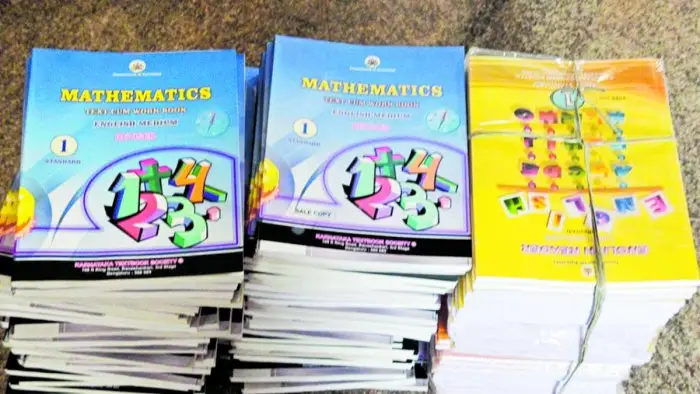By Elizabeth Osayande
As primary and secondary schools closed for the term, parents have continued to lament the cost of textbooks they are given to buy for their children as a new session is set to begin in September.
Not only are parents complaining about the high cost, they are also asking why pupils and students cannot use textbooks used by their older siblings.
Parents groan
For a parent, Mrs. Omobola-nle, buying another set of textbooks for her son when his older siblings have the textbooks, is insensitive on the part of school owners.
“I think it is high time parents signed a petition on this issue. I have twin girls and their brother is attending the same school with them. That means I have the same textbooks used by the girls but their younger brother cannot use them. Sadly, most school owners are after their own profits,” she said.
Another parent, Mrs. Jane Progress said, “Now my daughter is going to Nursery One, and as usual her brother has those books she would be needing. But, it is a waste as I have to buy another set for her, despite her brother not making use of all the books we bought.”
Another parent who corroborated Progress’ submission said: ’’And kids even come back home with some very new and unused textbooks at the end of a session. Why make us buy books if they won’t be used at all? For this parent, who craved anonymity, the question of buying textbooks for every session should be addressed.
“Schools are a blessing but these days, they have turned into something else so I wonder if the private schools for this generation are meant to impoverish parents indirectly. I remember doing a clean-up of books about two years ago and I had an empty bag of rice filled with books in twos and threes as I have three kids.
“My dad saw the bag and couldn’t but praise me and my husband as he knows we must have spent a fortune to get those books. A lot of parents struggle to pay fees and still have to buy plenty of books, even Yoruba, that they can barely read.”
Why buying textbooks is compulsory
According to Mrs. Faith Aiwondagbo, putting a workbook inside a textbook is the main reason for discouraging the reuse of textbooks.
“I share the same experience with you too and it does not sit well. However, it is more of the writer’s/publisher’s fault because those books are now designed so they have spaces for answers and questions, which makes it impossible to reuse. I do not know if it is planned by school owners and the source,” Aiwondagbo explained.
In the same vein, Dami Oshodi said: “Go through those textbooks yourself and you will see that there are spaces in there for classwork. All these books come with workbooks too for the children to write on.”
Parents blame school owners, publishers
While parents lament the cost and pain of buying the same set of textbooks for their wards, they have continued to blame the book value chain, especially school owners, publishers and the government for their woes.
A parent, Abiodun Sunday said: “I will always say it this way; we Nigerians are good at taking advantage of one another in any way possible. Private schools would invent anything just to get into parents’ pockets. I had four children in the same school back then and they couldn’t pass textbooks to each other; I see it as wickedness and nothing more.”
For Samuel Nyam: “It is the school’s way of making money. Private schools are profit-driven and I can’t take that away else the school will close down. Secondly, most current textbooks have activity pages in them where learners are given independent activities and homework. So the books become less useful after a learner has used them.”
For Chika Ifeanyi: “Unfortunately, the school became a business enterprise, they collaborated with publishers to extort money from parents, even going further to sell the books above the publisher’s price. School owners make a commission from each textbook supplied by publishers. School owners benefit immensely while all the ever-increasing expenses are on our heavily loaded shoulders.”
Government has the blame
“Government should be blamed for not regulating this part of education, both the publishers and the school owners are working hand in hand. Publishers have to register their books at the ministry to get them approved. Seeking approval costs money.
“Now these publishers are Nigerians too, who want heavy profit and sales. So how can they make sure sales come in yearly? But making the textbooks have workbooks or some contents of the workbook in the textbook will increase sales yearly,” Joy Progress said.
For the Managing Consultant, Flourish Gate Consult, Dideolo Adekogbe, the government needs to regulate the publishing industry.
“This is where I always insist on the enforcement of compliance. It is the responsibility of the Ministry of Education. This is a country and there is a ministry and policy guiding operations. Why can’t there be enforcement?”
In finding solutions to the above, parents have advocated that rather than spend huge amounts on new textbooks, textbooks in good shape should be reused.
Source: Vanguard








